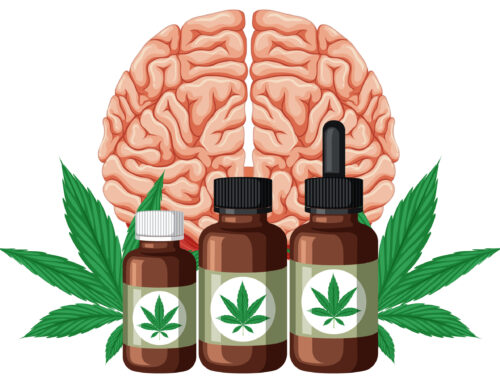8 Conditions Doctors Can Legally Prescribe Medical Marijuana To You
Medical marijuana has emerged as a legitimate and effective treatment option for various conditions. But with its increasing popularity, it’s crucial to understand who can prescribe medical marijuana. In most states, unlike traditional medication, a medical marijuana prescription requires a visit to a licensed healthcare provider registered with the state’s medical marijuana program. Services like EZMEDCARD can help connect you with such qualified providers. Not just any doctor can prescribe marijuana. This comprehensive guide will delve into medical marijuana, exploring eight common conditions that may warrant a medical marijuana prescription from a qualified provider and shedding light on obtaining one.
Medical Marijuana at a Glance
Before we explore the conditions for which doctors can issue a medical marijuana prescription, let’s understand what medical marijuana is. Medical marijuana, often called medical cannabis, uses the marijuana plant or its extracts for therapeutic purposes. This natural remedy has a long history, dating back to ancient civilizations, and it’s important to note that it’s distinct from recreational marijuana, which is used primarily for its psychoactive effects.
Legal Status of Medical Marijuana
The legal status of medical marijuana varies greatly from one location to another. While some countries and U.S. states have embraced its use for medical purposes, others still prohibit it entirely. This disparity can make it challenging for patients seeking relief. Fortunately, both recreational and medical marijuana are legally permitted in Massachusetts. Recreational cannabis is exclusively legalized for Massachusetts residents aged 21 and older. Conversely, medical marijuana is accessible to all patients who fulfill the criteria outlined in the law. Minors under the age of 18 who qualify can only utilize medical cannabis with the approval of their legal guardians.
When considering who can prescribe medical marijuana, it’s important to understand that licensed medical marijuana doctors, not dispensaries, have the authority to issue prescriptions. These doctors will evaluate a patient’s specific medical needs, such as pain relief for various conditions, before recommending medical marijuana.
Common Conditions that Allow Medical Marijuana Prescriptions
Below are a few prevalent ailments and indications for which medical marijuana can be prescribed by your medical marijuana doctor:
1. Chronic Pain
This is a silent epidemic that affects millions of individuals across the globe, wearing away their quality of life day by day. This is not the pain accompanying the occasional headache or muscle soreness; chronic pain is persistent, unyielding, and life-altering. For those grappling with it, obtaining a medical marijuana prescription could be the beacon of hope they’ve been yearning for. For those searching for a medical marijuana prescription in Massachusetts, count on EZMEDCARD for a smooth and effective procedure.
Understanding Chronic Pain
Chronic pain isn’t just an occasional inconvenience; it’s a relentless adversary that persists for an extended period, often stretching for weeks, months, or even years. The experience varies from person to person, but the pain is consistent in its ability to disrupt lives.
Limits of Conventional Pain Management
Traditional methods of managing pain, including over-the-counter pain relievers, prescription opioids, physical therapy, and even surgical interventions, often fall short in the face of chronic pain.
Prescription Opioids
While they can provide relief, the risk of dependency and addiction looms large.
Nonsteroidal Anti-Inflammatory Drugs (NSAIDs)
These may offer temporary relief, but they can lead to gastrointestinal problems with prolonged use.
Physical Therapy
Although beneficial, its effects are often temporary, requiring ongoing sessions.
Turning to Medical Marijuana for Relief
Cannabis prescriptions involves carefully assessing a patient’s medical history and current condition by qualified medical professionals. Upon determination that cannabis could provide therapeutic relief, these professionals issue precise cannabis prescriptions detailing the type, dosage, and administration methods of the cannabis products. Medical marijuana presents a compelling alternative for those seeking respite from chronic pain. Here’s how it can make a difference:
Engaging the Endocannabinoid System
The human body has an endocannabinoid system, a complex network of receptors and compounds that play a pivotal role in regulating various physiological processes, including pain perception. The cannabinoids found in marijuana, such as THC and CBD, can interact with this system, potentially reducing the pain signals transmitted to the brain.
Taming Inflammation
Inflammation is a frequent source of pain, especially in conditions like arthritis. Medical marijuana’s anti-inflammatory properties can help soothe this inflammation, providing relief and improved mobility. Marijuana prescription doctors would recommend a course of prescription marijuana to manage the patient’s chronic pain and improve their quality of life.
2. Cancer
Cancer has touched countless lives, directly or indirectly. This relentless disease brings a barrage of debilitating symptoms, making life feel like an endless struggle for many. For those confronted by cancer’s grim presence, a potential remedy in the form of a medical marijuana prescription offers a glimmer of hope.
Impact of Cancer
A cancer diagnosis is a seismic event that can shake one’s world. Beyond the uncertainty and fear, cancer introduces a barrage of distressing symptoms that can vary depending on the type and stage of the disease. These symptoms often include:
Pain
Tumors, and cancer treatments can inflict severe pain.
Nausea and Vomiting
Chemotherapy-induced nausea and vomiting are notorious side effects.
Loss of Appetite
Cancer can significantly decrease appetite, making it difficult to maintain proper nutrition.
The Shortcomings of Conventional Cancer Treatments
While conventional cancer treatments have made significant strides, they often fall short of adequately managing the side effects:
Prescription Opioids
While they can provide pain relief, the risk of dependency and addiction looms large.
Anti-Nausea Medications
These can alleviate nausea to some extent but may not always be effective.
Appetite Stimulants
These medications may not consistently yield positive results for those suffering from appetite loss.
How Medical Marijuana Alleviates Cancer Symptoms
Marijuana prescription doctors possess the necessary knowledge about the various strains and forms of cannabis, enabling them to tailor prescriptions to suit individual patient needs while adhering to state regulations. Medical marijuana emerges as a compelling alternative for those seeking respite from the distressing symptoms associated with cancer:
Pain Management
Cancer-related pain can be excruciating. Medical marijuana, particularly strains with a balanced ratio of THC and CBD, can reduce pain, enhancing the patient’s overall comfort. Once the patient receives their medical marijuana card prescription, they will be able to visit local dispensaries and purchase the specific cannabis products recommended by their doctor.
Nausea and Vomiting Relief
Chemotherapy-induced nausea and vomiting are well-documented challenges in cancer treatment. Medical marijuana’s anti-nausea properties can provide much-needed relief, allowing patients to endure their treatments more comfortably. Individuals seeking a medical marijuana prescription should consult their healthcare provider to discuss their medical history and explore whether cannabis-based treatment aligns with their needs and conditions.
Stimulating Appetite
For patients grappling with appetite loss, medical marijuana can stimulate hunger and improve their ability to maintain proper nutrition, which is crucial for their overall well-being.

3. Epilepsy and Seizures
Epilepsy is a neurological condition that affects millions of lives worldwide. It’s characterized by recurring seizures, ranging from mild to severe, and profoundly impact an individual’s daily life. For those living with epilepsy and for their families, the pursuit of a medical marijuana prescription represents a potential ray of hope in managing these debilitating seizures. Looking to secure a medical marijuana prescription in Massachusetts? Look no further than EZMEDCARD for a streamlined and productive experience.
Understanding Epilepsy and Seizures
Epilepsy is a neurological disorder characterized by recurrent, unprovoked seizures. These seizures can take various forms, from brief lapses in awareness to convulsions and loss of consciousness. Living with epilepsy often means living with uncertainty, as seizures can strike unexpectedly.
The Challenge of Managing Seizures
Conventional treatments for epilepsy typically involve antiepileptic medications. While these medications are effective for many, they aren’t a one-size-fits-all solution. Some individuals don’t respond well to them, and others experience troubling side effects.
How Medical Marijuana Can Address Seizures
Medical marijuana is a promising option for managing seizures in certain epilepsy cases. Here’s how it can make a difference:
Calming Seizure Activity
The cannabinoids found in marijuana, particularly CBD, have shown promise in reducing the frequency and severity of seizures. They may help stabilize electrical activity in the brain, preventing seizures from occurring. Before initiating a medical marijuana prescription, doctors discuss potential risks, benefits, and alternative treatments with their patients to make informed decisions about their healthcare journey.
Improved Quality of Life
For some epilepsy patients, medical marijuana can offer improved seizure control with fewer side effects than traditional medications. This can lead to a significant enhancement in their overall quality of life.
4. Multiple Sclerosis
Multiple Sclerosis, commonly known as MS, is a chronic autoimmune disease that affects the central nervous system. It’s a condition that can bring unpredictable challenges and disrupt daily life. For those navigating the often-complicated landscape of MS, the possibility of a medical marijuana prescription offers a potential path toward symptom relief and improved quality of life.
Understanding Multiple Sclerosis
MS is a complex disease characterized by the immune system mistakenly attacking the protective covering of nerve fibers, known as myelin. This can result in a wide range of symptoms, including:
Muscle Weakness and Spasms
Individuals with MS often experience muscle weakness, spasms, and difficulty with coordination.
Fatigue
Debilitating fatigue is a common symptom that can interfere with daily activities.
Numbness and Tingling
Sensory disturbances, such as numbness and tingling, are frequent.
Difficulty Walking
As the disease progresses, mobility can become increasingly challenging.
The Challenge of Managing MS
The management of MS typically involves medications aimed at slowing disease progression and alleviating symptoms. While these treatments can be effective, they often come with side effects and may not provide complete relief.
How Medical Marijuana Can Help in MS
Medical marijuana is gaining attention as a potential complementary treatment for MS thanks to its ability to address some of the condition’s most challenging symptoms:
Pain Relief
MS-related pain, including muscle spasms and neuropathic pain, can be relentless. Medical marijuana’s analgesic properties may offer relief without the risk of addiction associated with opioids. Obtaining a medical marijuana card prescription involves a thorough evaluation by a certified medical professional to ensure the patient’s eligibility for accessing and using medical cannabis. Research continues to demonstrate the potential benefits of a medical marijuana prescription in managing chronic pain and improving the quality of life for patients.
Muscle Spasm Reduction
Muscle spasms and stiffness are common in MS. Medical marijuana can help relax muscles, improving mobility and reducing discomfort.
Improved Sleep
MS-related symptoms often disrupt sleep patterns. Medical marijuana may promote better sleep, contributing to improved overall well-being.
5. Mental Health Conditions
Mental health conditions affect millions, silently impacting their lives and sometimes making even the simplest daily tasks seem daunting. From anxiety and depression to more complex disorders like bipolar disorder and schizophrenia, these conditions have unique challenges. For those on this journey, the prospect of a medical marijuana prescription can offer a glimmer of hope in managing their symptoms and finding a path toward healing. EZMEDCARD simplifies obtaining a medical marijuana prescription in Massachusetts, ensuring efficiency every step of the way.
Understanding Mental Health Conditions
Mental health conditions encompass a wide spectrum of disorders that affect thoughts, emotions, and behavior. Some common ones include:
Anxiety Disorders
These include generalized anxiety disorder, social anxiety disorder, and panic disorder.
Mood Disorders
Such as depression, bipolar disorder, and cyclothymic disorder.
Psychotic Disorders
Like schizophrenia and schizoaffective disorder.
Post-Traumatic Stress Disorder (PTSD)
Often triggered by traumatic experiences.
The Challenge of Managing Mental Health
Managing mental health conditions is an ongoing journey involving therapy, counseling, and medications. While these treatments can be effective, they may not provide complete relief, and some individuals experience side effects.
How Medical Marijuana Can Aid Mental Health
If you’re wondering who can prescribe medical marijuana, you should know that only registered and approved members of the state’s medical marijuana program—including doctors and nurse practitioners—can do so. Medical marijuana is increasingly being explored as a complementary treatment for mental health conditions, thanks to its potential to address some of the most challenging symptoms:
Anxiety Reduction
Certain strains of medical marijuana, particularly those high in CBD, may help reduce anxiety symptoms, promoting a sense of calm and relaxation. The physician will conduct a comprehensive assessment before issuing a medical marijuana prescription to alleviate the patient’s anxiety symptoms effectively.
Mood Stabilization
For individuals with mood disorders like bipolar disorder, medical marijuana may aid in stabilizing mood swings and preventing severe episodes.
Sleep Improvement
Sleep disturbances are common in many mental health conditions. Medical marijuana may help improve sleep patterns, enhancing overall well-being.

6. Inflammatory and Autoimmune Disorders
Inflammatory and autoimmune disorders encompass diverse conditions where the immune system often goes awry, attacking the body’s tissues and causing chronic inflammation. These disorders can range from rheumatoid arthritis to Crohn’s disease, posing unique challenges for those affected. For individuals navigating this complex landscape, the possibility of a medical marijuana prescription can offer a ray of hope in managing their symptoms and achieving a better quality of life. Are you in need of a medical marijuana prescription in Massachusetts? EZMEDCARD guarantees a seamless and efficient process to meet your requirements.
Understanding Inflammatory and Autoimmune Disorders
Inflammatory and autoimmune disorders are a broad category of conditions, including but not limited to:
Rheumatoid Arthritis
Where the immune system attacks the joints.
Lupus
It affects various organs and systems in the body.
Crohn’s Disease
Involving inflammation of the digestive tract.
Psoriasis
Resulting in skin inflammation and often affecting joints.
The Challenge of Managing Inflammatory and Autoimmune Disorders
Managing these conditions is often a lifelong journey. Treatment typically involves medications to suppress the immune system and alleviate inflammation. However, these treatments may not provide complete relief, and some individuals experience side effects.
How Medical Marijuana Can Address Symptoms
Medical marijuana is increasingly being explored as a complementary treatment for inflammatory and autoimmune disorders, thanks to its potential to address some of the most challenging symptoms:
Pain Relief
Medical marijuana, particularly strains rich in THC and CBD, may offer effective pain relief without the risk of addiction associated with opioids. Patients with qualifying conditions can consult a medical professional to explore the possibility of obtaining a medical marijuana prescription as part of their treatment plan.
Inflammation Reduction
The anti-inflammatory properties of medical marijuana may help soothe inflammation in various parts of the body, offering relief from symptoms like joint pain or digestive issues.
Improved Quality of Life
For individuals with these disorders, medical marijuana can potentially enhance their overall quality of life by alleviating symptoms that interfere with daily activities.
7. Neurological Conditions
Neurological conditions cover many disorders affecting the nervous system, from the brain to the spinal cord and nerves. These conditions often come with challenging symptoms, from seizures and tremors to cognitive impairment. For individuals grappling with these complex challenges, the possibility of a medical marijuana prescription represents a potential avenue for managing their symptoms and improving their quality of life.
Understanding Neurological Conditions
Neurological conditions encompass a broad spectrum of disorders, including:
Epilepsy
Known for recurrent seizures.
Multiple Sclerosis (MS)
An autoimmune disease affecting the central nervous system.
Parkinson’s Disease
Characterized by tremors, stiffness, and difficulty with movement.
Alzheimer’s Disease
Resulting in cognitive decline and memory loss.
The Challenge of Managing Neurological Conditions
Managing these conditions is often a complex and lifelong journey. Treatment typically involves a combination of medications, physical therapy, and lifestyle adjustments. However, these treatments may not provide complete relief, and some individuals experience side effects.
How Medical Marijuana Can Help in Neurological Conditions
Medical marijuana is gaining recognition as a complementary treatment for neurological conditions thanks to its potential to address some of the most challenging symptoms:
Seizure Control
For individuals with epilepsy, certain strains of medical marijuana have shown promise in reducing the frequency and intensity of seizures, enhancing their overall quality of life. The state’s regulations require a valid medical marijuana prescription for individuals to legally possess and use cannabis for medicinal purposes.
Tremor Reduction
In conditions like Parkinson’s disease, medical marijuana may help reduce tremors and improve motor control, allowing for increased independence.
Cognitive Support
In Alzheimer’s disease, medical marijuana may aid in managing symptoms related to memory loss and cognitive decline, potentially improving the individual’s daily functioning.
Navigating Legal Complexities
The legality of medical marijuana can be a complex issue. At the federal level in the United States, marijuana remains classified as a Schedule I controlled substance. However, many states have passed laws allowing for medical marijuana use. This legal dichotomy can lead to confusion and uncertainty for patients. To know more about medical cannabis in your area, visit reputable MMJ dispensaries near you, like the EZMEDCARD in Massachusetts.
Discover Relief: Explore Medical Marijuana Near You Today!
Ready to explore the potential of a medical marijuana prescription for your specific condition? Don’t wait any longer — take the first step towards a more comfortable and fulfilling life with EZMEDCARD. Our experienced team is here to guide you through the process, from consultation to registration. Start your journey to relief now! Contact us today for a consultation!
FAQ
1. What medical conditions can marijuana be used to treat?
Studies and anecdotal evidence suggest medical marijuana may offer potential relief for a variety of conditions. However, it's important to note that research is ongoing, and medical marijuana is not a cure for any condition. Some conditions where medical marijuana might be helpful include:
- Chronic pain: Studies suggest marijuana may help manage pain by interacting with the body's endocannabinoid system.
- Anxiety: Some research indicates marijuana, particularly strains high in CBD, might help reduce anxiety symptoms.
- Muscle spasms: Medical marijuana may offer relief from muscle spasms associated with conditions like multiple sclerosis.
- Nausea and vomiting: Marijuana can be effective in reducing nausea and vomiting, especially for patients undergoing chemotherapy.
- Seizures: While not a first-line treatment, some studies suggest CBD-rich strains may help reduce seizure frequency in patients with epilepsy.
2. What conditions qualify for a medical marijuana card in California?
California has a broad patient qualification system, allowing doctors more flexibility in recommending medical marijuana. Here are some general categories of qualifying conditions:
- Chronic pain or muscle spasms
- Severe and chronic medical conditions
- People with a terminal illness with a prognosis of less than one year
3. Who can prescribe medical marijuana in New York?
In New York, only certified healthcare practitioners, like physicians, physician assistants, and nurse practitioners, registered with the state's medical marijuana program can recommend medical marijuana.
4. What are the ethics of medical marijuana?
The ethics of medical marijuana are complex and involve considerations like:
- Scientific evidence: While research is growing, there's still a need for more robust studies to determine the long-term effects and efficacy of medical marijuana for various conditions.
- Potential for abuse: Marijuana can be psychologically addictive for some users, and there's a concern about potential diversion for recreational use.
- Social justice: Past marijuana prohibition laws have disproportionately impacted minority communities. Ethical considerations include ensuring equitable access to medical marijuana for all.
5. Are there any side effects associated with using medical marijuana?
Yes, medical marijuana use can have side effects, depending on the strain, dosage, and individual. Some potential side effects include:
- Drowsiness and impaired coordination: THC, the psychoactive component in marijuana, can cause drowsiness and fatigue, potentially affecting reaction time and balance.
- Changes in mood or behavior: While some studies suggest marijuana may help with anxiety, in some individuals it might trigger negative mood swings or even paranoia.
- Digestive problems: Upset stomach, diarrhea, or changes in appetite are possible side effects, especially when consuming edibles.
- Cognitive impairment: THC use can impair memory, learning, and concentration, especially in adolescents and young adults.




